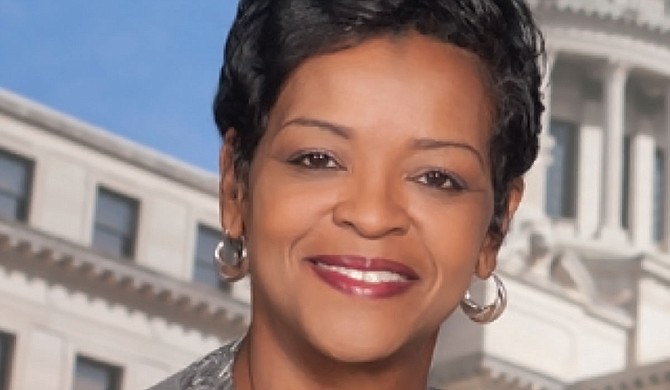“Any strategic plan that is going to address Mississippi's needs, needs to include and consider the plight of Black Mississippians as well as the white working poor,” said the caucus chairwoman, Democratic Sen. Angela Turner-Ford of West Point. Photo courtesy State of Mississippi
JACKSON, Miss. (AP) — Mississippi legislators are set to start voting Sunday on details of a state government spending plan for the year that begins July 1.
The state-funded portion of the budget will be nearly $6 billion, which is a slight increase over the current year. The total budget will be more than $21 billion, with money from the federal government and other sources, including the state gasoline tax.
Legislators last week authorized a teacher pay raise for the coming year — $1,000 for most teachers and $1,100 for newer ones. Budget writers say they were taking the necessary separate step to pay for the raise, which will cost about $52 million.
House and Senate budget leaders also said they agreed to set aside $23 million to cover the increased cost of state employees' health insurance. Because the state is paying, the employees will not lose money from their paychecks.
Negotiators faced a Saturday night deadline to finish work on more than 100 budget bills. Three senators and three House members were working on each bill, and final versions of bills were being filed as the deadline approached.
The budget bills will still need approval from a majority of the 122 House members and 52 senators. That is the process that begins Sunday. If there are big disagreements, parts of the budget can be sent back for more work.
Members of the Legislative Black Caucus held a news conference Saturday to discuss nearly $436 million in spending requests.
“Any strategic plan that is going to address Mississippi's needs, needs to include and consider the plight of Black Mississippians as well as the white working poor,” said the caucus chairwoman, Democratic Sen. Angela Turner-Ford of West Point.
The list includes nearly $104 million to expand drug and alcohol treatment programs; $17 million to extend Medicaid coverage to one year for women after giving birth, up from the current two months; $10 million for a summer jobs program for young people; $2 million for after-school remediation programs for students who need academic help because of the coronavirus pandemic and $60 million for a capital improvement fund for the state's three historically black universities.
The caucus request also includes $159 million to expand Medicaid services to an estimated 200,000 to 300,000 people who work in low-wage jobs that do not offer health insurance. Mississippi is one of a dozen states that have rejected Medicaid expansion as an option under the federal health care law signed by then-President Barack Obama in 2010. Even with the federal government now offering more incentives for states to expand Medicaid, Republican Gov. Tate Reeves says he remains opposed.



Comments
Use the comment form below to begin a discussion about this content.
comments powered by Disqus